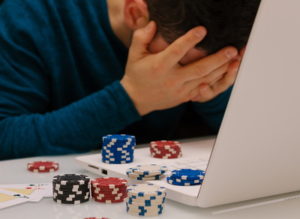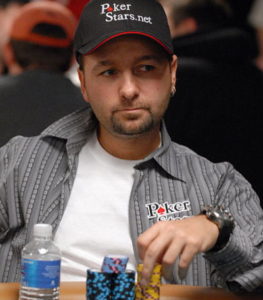 In the competitive world of poker, success often hinges on a player’s ability to make calculated decisions under pressure. While there are many factors that can influence a player’s performance, one often overlooked aspect is sleep. Adequate rest is essential for cognitive function, focus as well as decision making skills, all of which are crucial for success at the poker table.
In the competitive world of poker, success often hinges on a player’s ability to make calculated decisions under pressure. While there are many factors that can influence a player’s performance, one often overlooked aspect is sleep. Adequate rest is essential for cognitive function, focus as well as decision making skills, all of which are crucial for success at the poker table.
As poker players, we often spend countless hours honing our skills, analysing strategies and perfecting our game. While we might think that staying up all night playing poker is a sign of dedication, the brutal truth is that a lack of quality sleep can significantly negatively impact our gameplay.
In this article, we will explore the vital role that sleep plays in your poker performance and how prioritising quality rest can elevate your game to new heights as well as improving your overall well being.
The Connection Between Sleep And Cognitive Function
 In order to fully comprehend the impact of sleep on our poker performance, it is essential to understand the connection between sleep and cognitive function. Our cerebral functions, which include processes such as attention, memory, decision making and problem solving, are crucial when it comes to playing poker effectively.
In order to fully comprehend the impact of sleep on our poker performance, it is essential to understand the connection between sleep and cognitive function. Our cerebral functions, which include processes such as attention, memory, decision making and problem solving, are crucial when it comes to playing poker effectively.
During sleep, our brain goes through various stages that are vital for cognitive function. These stages include slow wave sleep and REM (deep) sleep. These are responsible for memory, learning and creativity. When we do not get enough sleep or experience poor sleep quality, these cognitive functions are reduced.
Lack of sleep can lead to a decreased attention span, slower reaction times and a diminished ability to process information quickly and accurately. In the context of poker, these effects can be disastrous. Attention lapses can cause us to miss crucial information, while slower reaction times can result in missed opportunities whereas weakened information processing can hinder our decision making capabilities.
Therefore, it is clear that getting enough quality sleep is essential for optimal cognitive function which, in turn, has a massive our poker playing skills. In the following sections, we will explore in more detail how sleep directly affects our gameplay and provide practical tips for improving sleep to enhance our poker performance at the tables.
Analysing The Impact Of Sleep On Poker Playing Skills
 It is clear that the impact of sleep on our poker playing skills is significant. For instance, attention lapses caused by lack of sleep can cause us to miss important cues or tells from our opponents, meaning that we will miss out on valuable information.
It is clear that the impact of sleep on our poker playing skills is significant. For instance, attention lapses caused by lack of sleep can cause us to miss important cues or tells from our opponents, meaning that we will miss out on valuable information.
Slower reaction times can result in missed opportunities to make timely bets or raises, ultimately affecting our profitability. Additionally, reduced information processing can impair our decision making abilities, leading to poor choices and costly mistakes.
Players that are tired are likely to be more irritable and less capable of controlling their emotions which is no good we tend to lose money when go full tilt. Well rested players on the other hand tend to tilt less hard and less often.
In contrast, getting enough quality sleep improves our intellectual function, allowing us to stay focused, make quick and accurate decisions as well as adapt to changing situations. By prioritising sleep and ensuring that we get the rest we need, we can greatly enhance our poker playing skills and increase our chances of success at the table.
Practical Tips To Improve Your Sleep For Better Poker Performance
 Getting enough quality sleep is crucial for optimal mental function and, in turn, improved poker performance. So, how can we go about ensuring that we are getting the rest that we need? Here are some practical tips to improve your sleep for an al round improved poker performance.
Getting enough quality sleep is crucial for optimal mental function and, in turn, improved poker performance. So, how can we go about ensuring that we are getting the rest that we need? Here are some practical tips to improve your sleep for an al round improved poker performance.
- Aim to establish a consistent sleep schedule by trying to go to bed and waking up at the same time every day, even at the weekends. This will help to regulate your body clock and helps to ensure a more regular sleep pattern.
- Create a bedtime routine by only taking part in relaxing activities before bed, such as reading a book or taking a nice warm bath. This will let your body know that it’s time to wind down and gets you ready for sleep.
- Create a sleep-friendly environment by making sure that your bedroom is cool, dark and quiet. You can achieve this by installing blackout curtains and using ear plugs or white noise machines to block out any distractions.
- Avoid stimulating activities before bed by cutting out screen times such as TV, phone and computer at least an hour before bed. The blue light given off by those screens can interrupt your sleep patterns.
- Limit your caffeine and alcohol intake because caffeine can interfere with falling asleep, so avoid consuming it in the late afternoon and evening. Alcohol on the other hand may make you drowsy initially, but it can disrupt your sleep later on in the night.
- Exercise regularly as regular physical activity can help to promote better sleep. That being said, you should avoid vigorous exercise too close to bedtime as it can energise you and make it much harder to fall asleep.
- Figure out your circadian rhythm which is a series of hormonal clocks that track time for your body and something we all have baked in to us. This will alter over time as we get older, and it will not adapt to our professional habits resulting in social jet lag where work can force us out of our natural sleep cycle. For those of you that are lucky enough to have control over your sleep cycle, turn your alarm clock off for a fortnight. Simply go to bed when you are tired and get up when you are not tired. After about a week or more, your body clock will have found its natural balance, and you will have gained a sense of when your body needs its sleep.
- Schedule for seven or eight hours of sleep a night. Individual sleep requirements differ from person to person, but very few working age adults need a minimum of than seven hours or more of sleep each night. So, make sure that you are settling down early enough before your morning alarm goes off.
- Improve your diet because eating healthier will help you get a better night’s sleep. Avoid sugar and basic carbs the closer it gets to bedtime, as these can give you a burst of energy that might need to be worked off. Vitamins are also important for your sleep cycle, so try to start your day with a multivitamin or a mix of fruit and veg.
- Manage stress by practising relaxation techniques such as deep breathing, meditation or yoga in order to help manage stress which should lead to better sleep.
By implementing these practical tips, you can improve the quality and quantity of your sleep, leading to better cognitive function and ultimately enhancing your poker performance. As they say, sleep well, play well.
Case Studies: High Stakes Players And Their Sleep Patterns

Before the 48th Annual World Series of Poker (WSOP), Daniel ‘KidPoker’ Negreanu, as he does prior to every series, shared his goals for the upcoming event. High up on his list was to sleep a lot and true enough, the two time WSOP Player of the Year even had a trailer installed outside the Rio casino so that he would be able to take micro naps during breaks.
Likewise, when Fedor Holz launched Primed Mind, his very own mental performance app, he was very vocal in interviews at the time about the importance of sleep in his rise into the top 10 all time money winners. When two players who have won so much between them and share the same enthusiasm for sleep, then it is time to pay attention.
When it comes to high stakes poker players, their sleep patterns can have a significant impact on their performance at the table. Take, for example, poker hall of famer Daniel Negreanu, a hugely successful professional poker player who consistently makes big profits. DNegs has a strict sleep routine, which he admitted in an online discussion with fellow he tracks and prioritises 1, 2 and 3.
KidPoker goes to bed and wakes up at the same time every day. He understands the importance of quality sleep in maintaining his cognitive function and making optimal decisions during gameplay. His well rested mind allows him to stay focused, react quickly and adapt to his opponents’ strategies.
In contrast, let’s say there is another high stakes player who often neglects his sleep that we will call Mark. Mark believes that staying up all night playing poker is a sign of dedication, but, as we know, it’s actually detrimental to his gameplay. Due to a lack of sleep, he experiences lapses in attention, slower reaction times and a reduced ability to process information accurately. As a result, Mark often misses crucial cues, makes poor decisions and loses money at the table.
These case studies clearly demonstrate the direct correlation between sleep patterns and poker performance. Getting enough quality sleep is vital for high stakes players to maintain their mind’s abilities and make the best choices during gameplay. By prioritising sleep, players can significantly improve their chances of success at the table and enhance their overall performance.
At the end of the day, literally, sleeping better will improve just about every aspect of your life be it work, hobbies, relationships or health. If you can make even the smallest of improvements to your sleeping pattern, you will find yourself better off for it. And you will also likely find that your poker game will improve along with it too.
